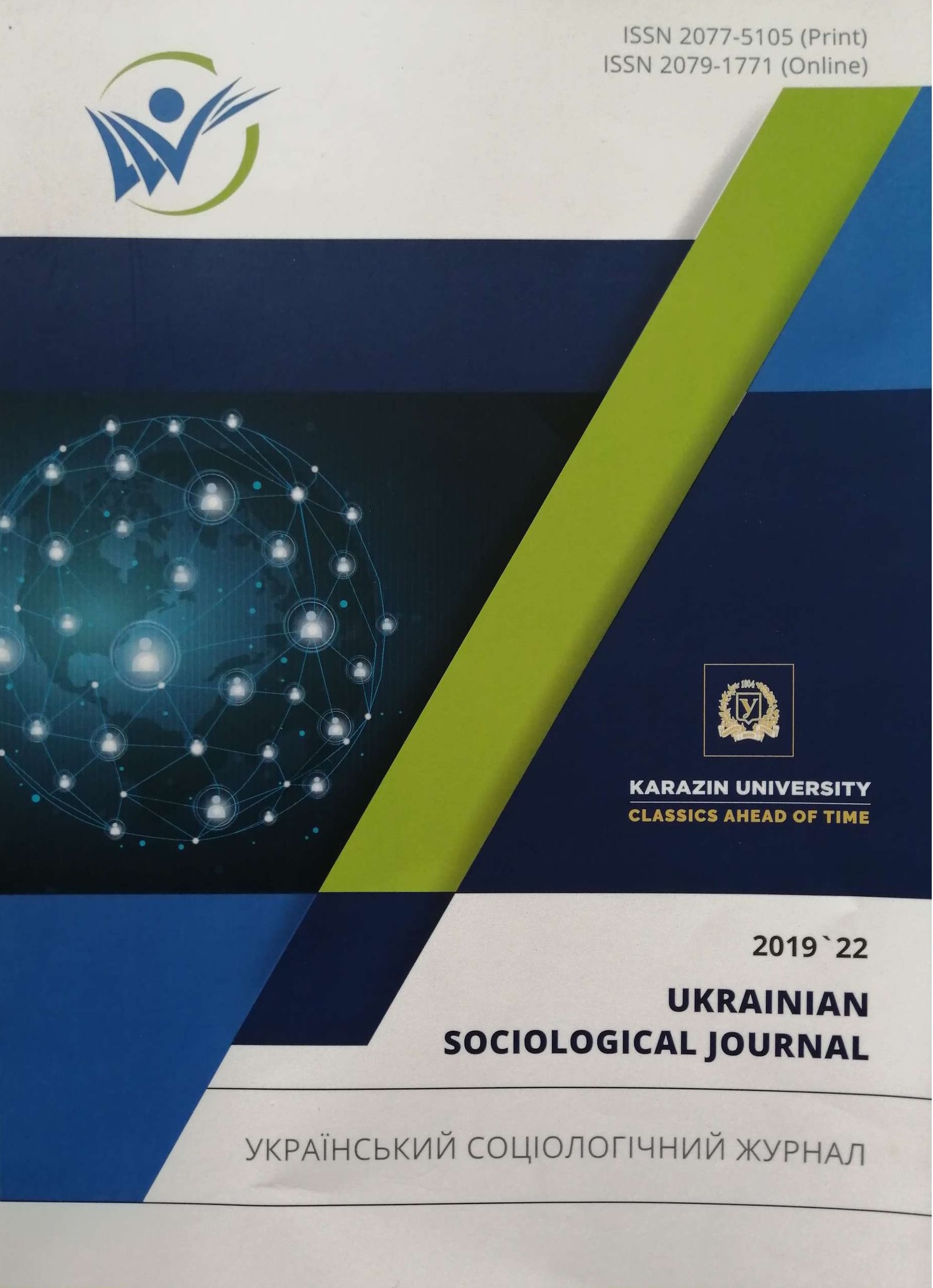Political Participation and Motivation: The Heuristic Potential of Sociological Concepts of Donatella Della Porta and Drew Halfmann (comparative analysis)
Abstract
The aim of the article is to demonstrate the potential of sociological concepts by Italian political scientist and sociologist Donatella Della Porta and American sociologist Drew Halfmann, to analyze political participation and motivation for it, to determine a new perspective for understanding the essence of political participation, the factors by which political involvement can be transformed. Within the framework of the analysis of D. Della Porta’s concept, the features of the organization of social movements and the mobilization of their participants in the information society are outlined, based on the emergence of horizontal ties between the participants of social movements based on the formation of identity, solidarity, collective actions and democratic innovations. The features of citizens’ political participation and the process of opinion formation in connection with the functioning of communicative spaces with high discursive quality are described. Attention is drawn to the D. Della Porta’s concept of political consumerism, which defines heuristic possibilities for studying political participation through the lens of political consumption and demonstrative behavior, as well as identifying factors influencing political participation (belonging to a group, hedonism, demonstration of a certain way of life, etc.). Within the framework of the analysis of the concept of D. Halfmann, the specificity of the implementation of social policy and its influence on citizens, the success of social movements depending on the political context are considered. D. Halfmann’s argument regarding the conceptual advantages of using the term “political context” to identify institutional conditions and factors conducive to political participation is outlined, and the author’s position on the expediency of using the term “political opportunity” is indicated, taking into account the institutional, structural and dynamic factors of the political system. The tools that can facilitate the mobilization of social movement participants, in particular the grotesque proposed by D. Halfmann and meme as its counterpart in modern society, are considered.
Downloads
References
American Heritage Dictionary URL: https://ahdictionary. com/word/search.html?q=context
American Heritage Dictionary URL: https://ahdictionary. com/word/search.html?q=opportunity
Barber B. Strong democracy: participatory politics for a new age. Berkeley: University of California Press, 1984. P. 117.
Della Porta D. Deliberation in Movement: Why and How to Study Deliberative Democracy and Social Movements. Acta Politica, 2005. V. 40 (3). P. 336-350.
Della Porta D. For participatory democracy: some notes. European Political Science. 2018. P. 1-14.
Della Porta D., Monticelli L. The Successes of Political Consumerism as a Social Movement. The Oxford Handbook of Political Consumerism. 2018. P. 772-792.
Della Porta D., Diani M. Social movements: An introduction. John Wiley & Sons. 2009. 356 p.
Halfmann D., Amenta E. Opportunity Knocks: The Trouble with Political Opportunity and What You Can Do about It. Palo Alto, CA: Stanford University Press, 2012. P. 227-239.
Halfmann D., Amenta E., Young M. The Strategies and Contexts of Social Protest: Political Mediation and the Impact of the Townsend Movement in California. Mobilization: An International Quarterly. 1999. Vol. 4, № 1. P. 1-23.
Halfmann D., Young M. P. War Pictures: The Grotesque As A Mobilizing Tactic. Mobilization: An International Quarterly. 2010. V. 15 (1). P. 1-24.
Halfmann, D. Who Voted with Hopkins? Institutional Politics and the WPA. Journal of Policy History. 2001. V. 13, № 2. P. 251-287.
Pateman C. Participation and Democratic Theory. Cambridge : Cambridge University Press, 1970. P. 122.
Буданова О. Б. Політична комунікація в інтернет-просторі: український контекст [Текст]: автореф. дис. ... канд. соцiол. наук: 22.00.04. Харків. нац. ун-т імені В. Н. Каразіна. Харків, 2015. 18 с.
Бурдье П. Делегирование и политический фетишизм. Начала. URL: http://bourdieu.name/content/delegirovanie-ipoliticheskij-fetishizm-0
Выборы в Северной Корее: «необычайный энтузиазм» и одно имя в бюллетене URL: https://glavred.info/world/328092- vybory-v-severnoy-koree-neobychaynyy-entuziazm-i-odno-imyav-byulletene.html
Муфф Ш. Постдемократия и постполитика URL: http:// gefter.ru/archive/10510
Розанваллон П. Контрдемократия: политика в эпоху недоверия URL: https://magazines.gorky.media/nz/2012/4/ kontrdemokratiya-politika-v-epohu-nedoveriya.html
Фисун А. А. Демократия, неопатримониализм и глобальные трансформации: монография. Х.: Константа, 2006. 352 с.
Фоломєєв М. А. Концептуалізація політичних інновацій у сучасному українському політичному процесі. Вісник Харківського національного університету імені ВН Каразіна. Серія «Питання політології». 2010. Вип. 885. С. 201-207.
Царенко О. О. Абсентеїзм: сутність визначення, причини та шляхи подолання. Філософія і політологія в контексті сучасної культури. 2012. Вип. 4 (1). С. 187-191.
Хабермас Ю. Структурная трансформация публичной сферы: Исследования относительно категории буржуазного общества / под ред. М. Беляева ; пер. В. И. Иванова. М.: Весь мир, 2016. 344 с.




